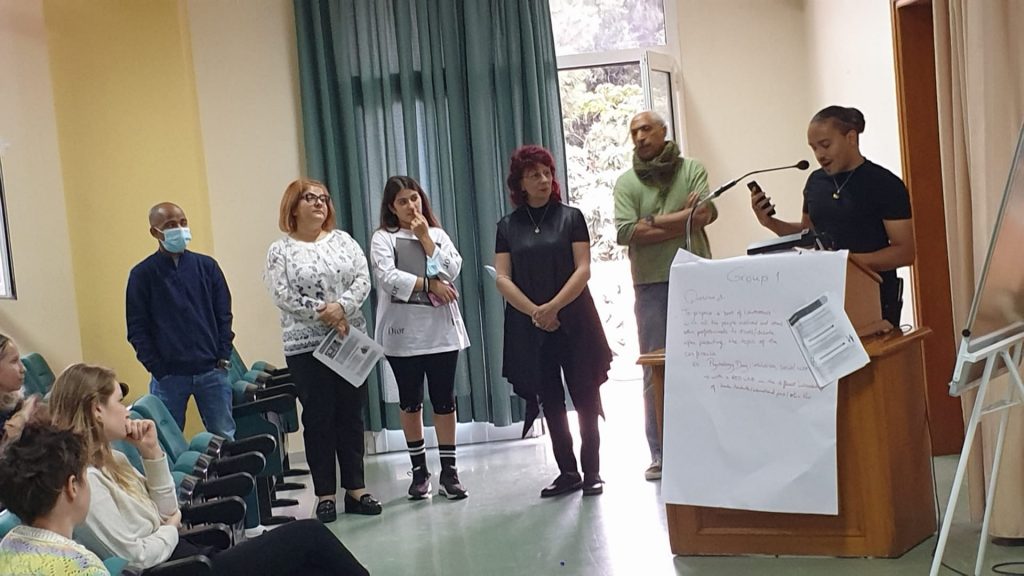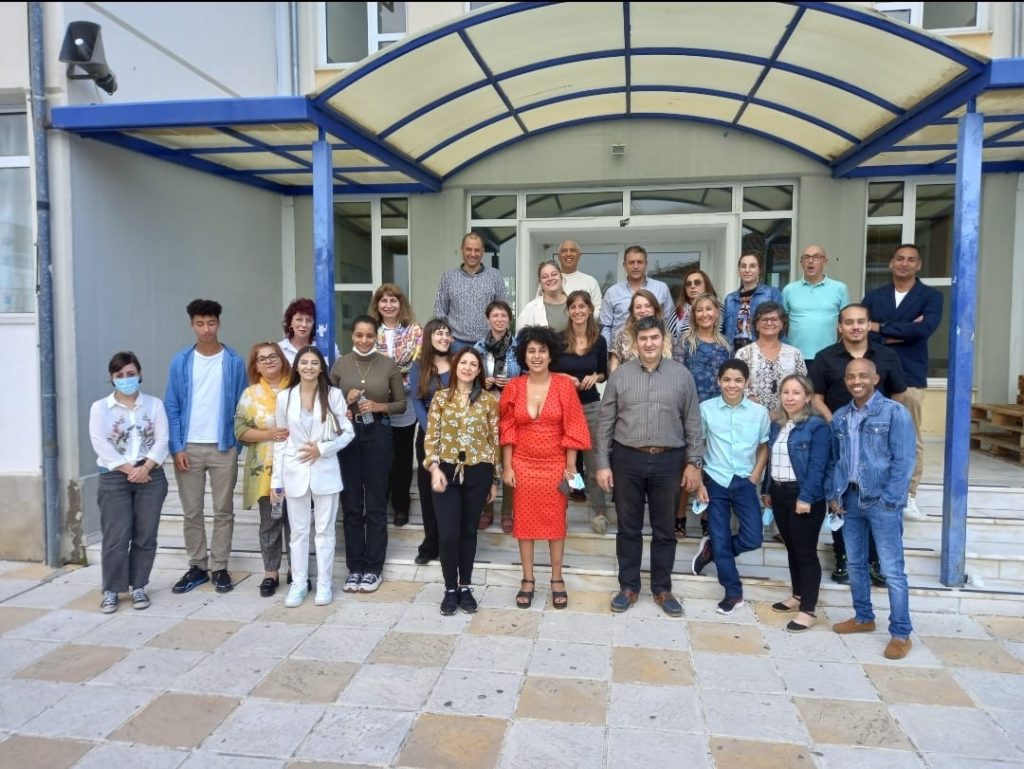During the week of the 4th of October, members of different organizations that worked on the IHAVET project as well as students with a migrant background, parents and youth workers travelled to Katerini (Greece) to test the toolkit produced. This meeting was a relevant step towards the development of the IHAVET toolkit.
At the Townhall of the municipality of Katerini, all the participants had the occasion to have a presentation of the non-formal education implemented in the refugee camp of Katerni. The vice president of the 2nd vocational school of Katerini introduced the Greek educational system. Then a presentation was made by one of the two teachers that is in charge of the Greek class for students that don’t speak Greek. He explained what he implemented in his class to help these children in the best way possible. He talked about the resources that were available to him as well as the difficulties encountered such as the difficulty to make himself understandable or the challenge he faced to make the students attend classes during the lockdown.

In Katerini, students with a migrant background, parents and youth workers were reunited to work together to discuss the relevance of the toolkit. To do so, each unit was tested with different activities prepared by each partner involved in the project. During these activities, issues and their possible solutions were discussed. Each party had the opportunity to express themselves based on their experience. Due to the different backgrounds and life stories, we were able to make a 360° test proving. Each and every aspect of the discussions were cautiously analysed and debriefed afterwards. This is the reason why having different points of view was essential to be able to see if the toolkit would be efficient. The feedback given by the participants was very encouraging.
The conclusion of this short-term training meeting in Katerini is that the toolkit will be a great and helpful tool for every person that is looking for solutions to better improve the educational journey of students with a migrant background. The tools provided will hopefully ensure that students become meaningful and productive members of society.
